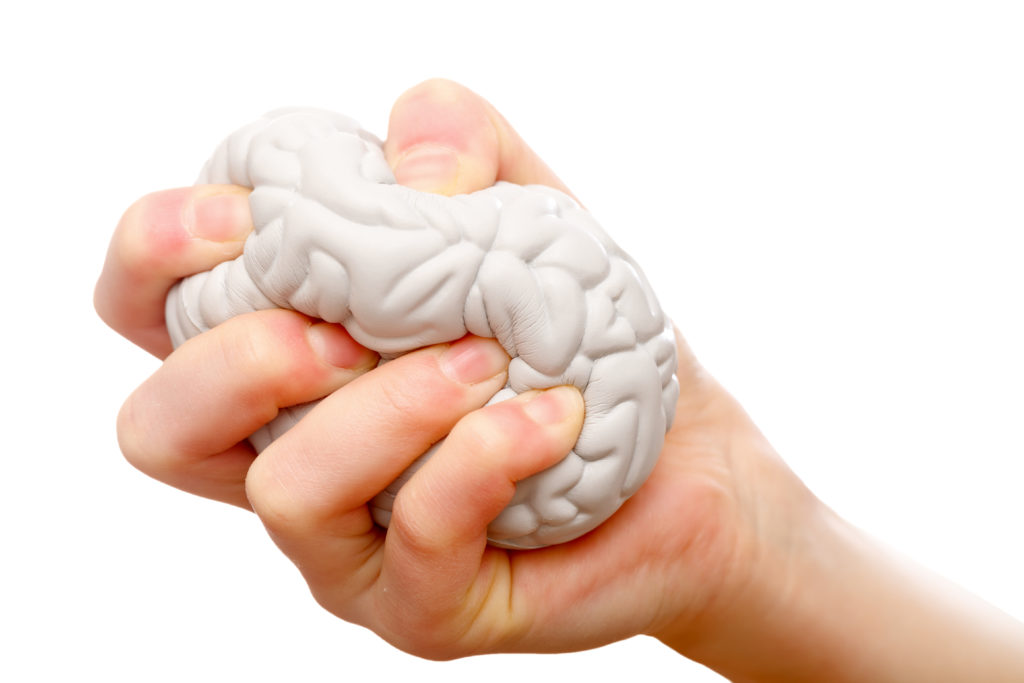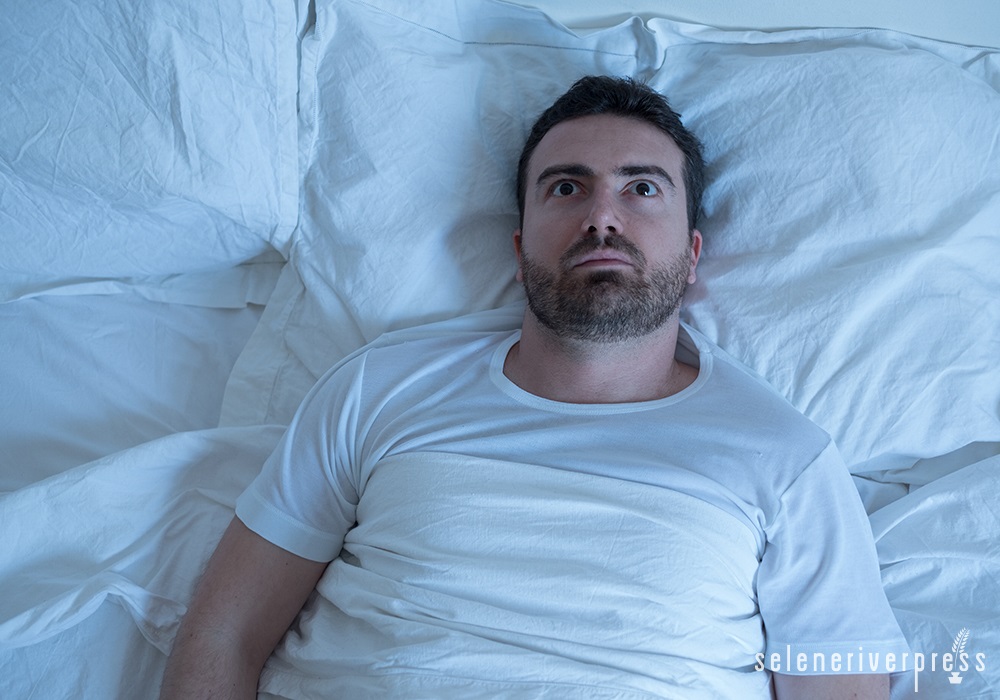I can just see every psychiatrist, psychologist, and even many holistic practitioners wondering if I’ve gone off the deep end by introducing the idea that maybe, just maybe, the excessive and sometimes irrational anxiety and fear experienced by millions of people in our society could be caused by a set of really bad habits. Yes, bad habits, which can be replaced with serenity, saneness, and, most of all, a resolution-based life in which we accept and work with whatever comes our way.
Had someone said this to me a few months ago, I would have told them to go fry their ear in vinegar. (Smile) But after some serious work with myself and others, I’m now of the opinion that the torture these mental states put our bodies through could be resolved, or at least alleviated, by working on the bad habits that contribute to them.
What I hope to impart to you is that if you train your body (not your mind) to focus on the anti-anxiety/fear habits I outline below, your body will no longer become frozen in a state of excessive or irrational anxiety or fear. Sound interesting?
Bring the Body, and the Mind Will Follow
To be perfectly honest, at times I myself have lived under the yoke of excessive anxiety and fear. One of those times, when I was about the age of ten, my family went to visit with my older, loving uncle who lived about 200 miles away from us. I always disliked traveling, and by the time we finally arrived I was a mess with anxiety and fear.
My uncle, noticing that I was less than calm, asked me why. After I told him about my fear of traveling, he asked me to sit quietly and imagine a field of flowers in my favorite color while saying a prayer and visualizing my guardian angel. I asked him how that would help me, and he responded with this bit of profound wisdom that I’ve never forgotten: “Bring the body, and the mind will follow.”
You’ll find that when you consistently practice calming rituals and the good habits outlined below with your body, your mind will sense your physical behavior and become calmer and less fearful. The more often you make use of these good habits, the faster you can replace your anxiety and fear with a wondrous sense of normalcy, including calm, rational thinking and a sense that all is well in the universe! Sounding hopeful?
Allow me to pause with this personal note: I refer to “excessive or irrational anxiety and fear” in order to differentiate it from normal anxiety and fear, which we all experience and should be grateful for as it keeps us safe. Excessive or irrational anxiety/fear is paralyzing, and those who experience these emotions are often afraid to do anything except mentally process their feelings of worry and their inability to relax. They often avoid physical movement as a way to evade what they perceive as dangers or uncertainty about the future, such as illness, death, heights, or other phobias.
How Does Your Personality Type Affect Your Anxiety and Fear?
Your personality type is important in determining how you react to many of the situations that surround your life. Knowing more about your personality type may give you an edge to better understanding the circumstances that provoke your anxiety or fear.
Face Up to the Root Causes of Your Anxiety and Fear
If per chance you’ve gotten this far, I hope the rest of this article will be meaningful for you and help you accept that you may have some habits that contribute to your sense of excessive or irrational anxiety or fear. More importantly, I hope this helps you make a 180-degree turn to a path where you can overcome this devastating condition and pass through that golden gate of peace.
Anti-Anxiety/Fear Good Habit #1
What you eat matters. In a recent blog post, “Be Happy—No Matter What,” I describe the major brain neurotransmitters as listed below:
- Serotonin: helps regulate moods
- Dopamine: linked to memory and cognitive skills
- Endocannabinoids: creates a sense of relaxation and joy
I also discuss the major foods that will lessen your symptoms. If one of your bad habits is related to a poor diet, the chances of reducing your anxiety/fear are reduced substantially unless you change your eating habits.
To be well nourished, I suggest the following great books: Nourishing Traditions by Sally Fallon Morell and Put Your Money Where Your Mouth Is! by Stephanie Selene Anderson.
Anti-Anxiety/Fear Good Habit #2
How you live matters: The way you live your life has absolutely everything to do with your mental well-being. In my humble opinion, the major problems that cause these conditions are as follows:
- Insomnia: An inadequate amount of sleep causes the brain to function erratically, and you can lose the ability to remain alert.
- Debt: Too much debt overload causes the expectation of doom and fear.
- Stress: An overload of stress keeps your body and brain fatigued to the point of exhaustion, which reduces your functionally to a mere whisper. No wonder you have anxiety and fear!
Anti-Anxiety/Fear Good Habit #3
Higher guidance: If you’re living your life with nothing but food, water, career, and some occasional recreation, you’re leaving out some of the most precious gifts from the table of life. I’ve worked with many clients who were able to resolve almost all traces of their anxiety and fear by just making the decision to put a strong spiritual or religious component into their daily life. Yes, prayer and meditation, and a belief in God or your understanding of a higher being, is the crowning jewel in an anxiety-free life.
Anti-Anxiety/Fear Good Habit #4
Holistic practitioners: In terms of using nutritional and herbal remedies to keep the body and mind stabilized, I’m in favor of seeking help from a chiropractor or a holistic practitioner who is able test for and provide the right Standard Process or Medi-Herb products. Supplementing on your own with anti-anxiety medications or even whole food supplements may mask some other physical issue that needs attention. You can find a practitioner in your area by searching here. Visiting practitioners for acupuncture, body work, and energy balancing are all part of Good Habit #4.
In closing, I ask you to consider my reasoning that, in many cases, our fear and anxiety might be caused and exacerbated by bad eating and living habits. In fact, anxiety and fear may not be mental disorders—they may just be eating and living disorders!
[xyz-ihs snippet=”Begin-Authors-Note”]Afterthoughts from the Traditional Cook
Bring the body, and the mind will follow.
Maria Atwood, CNHP
Note from Maria: I am a Certified Natural Health Professional, CNHP, not a medical doctor. I do not diagnose, prescribe for, treat, or claim to prevent, mitigate, or cure any human diseases. Please see your medical doctor prior to following any recommendations I make in my blogs or on my website.
Images from iStock/tommaso79 (main), Obencem (brain), SIphotography (man), estt (gate).





